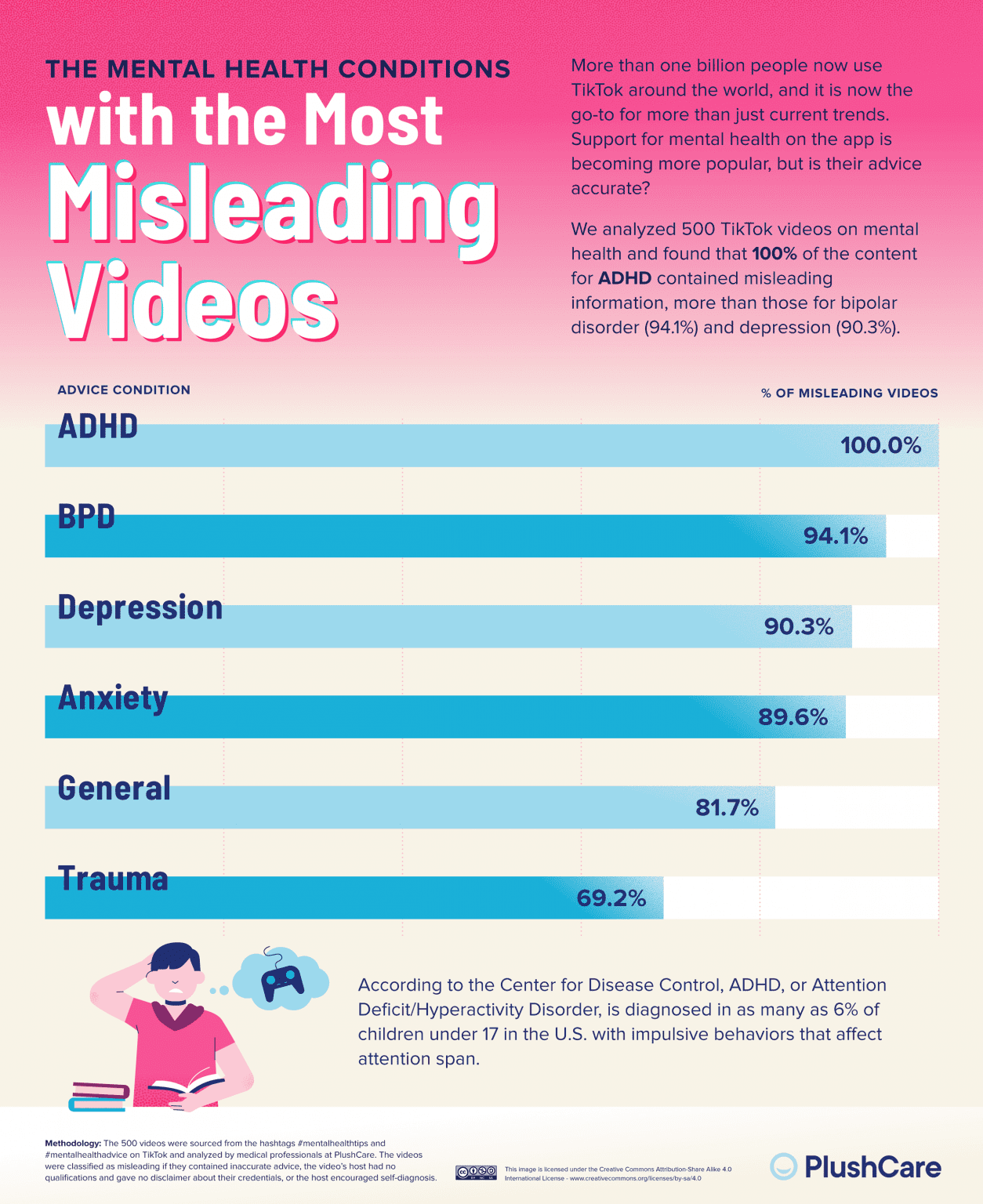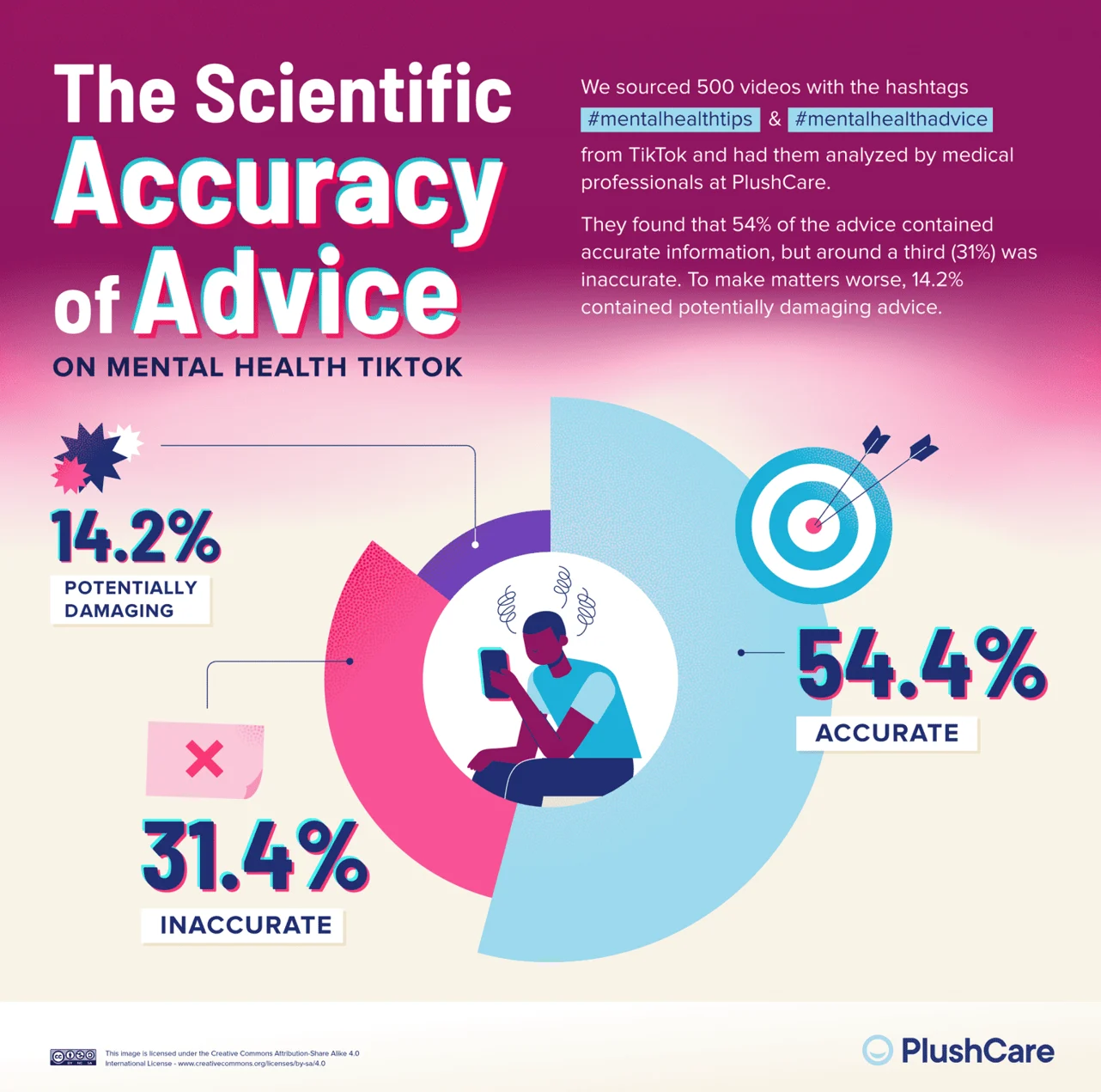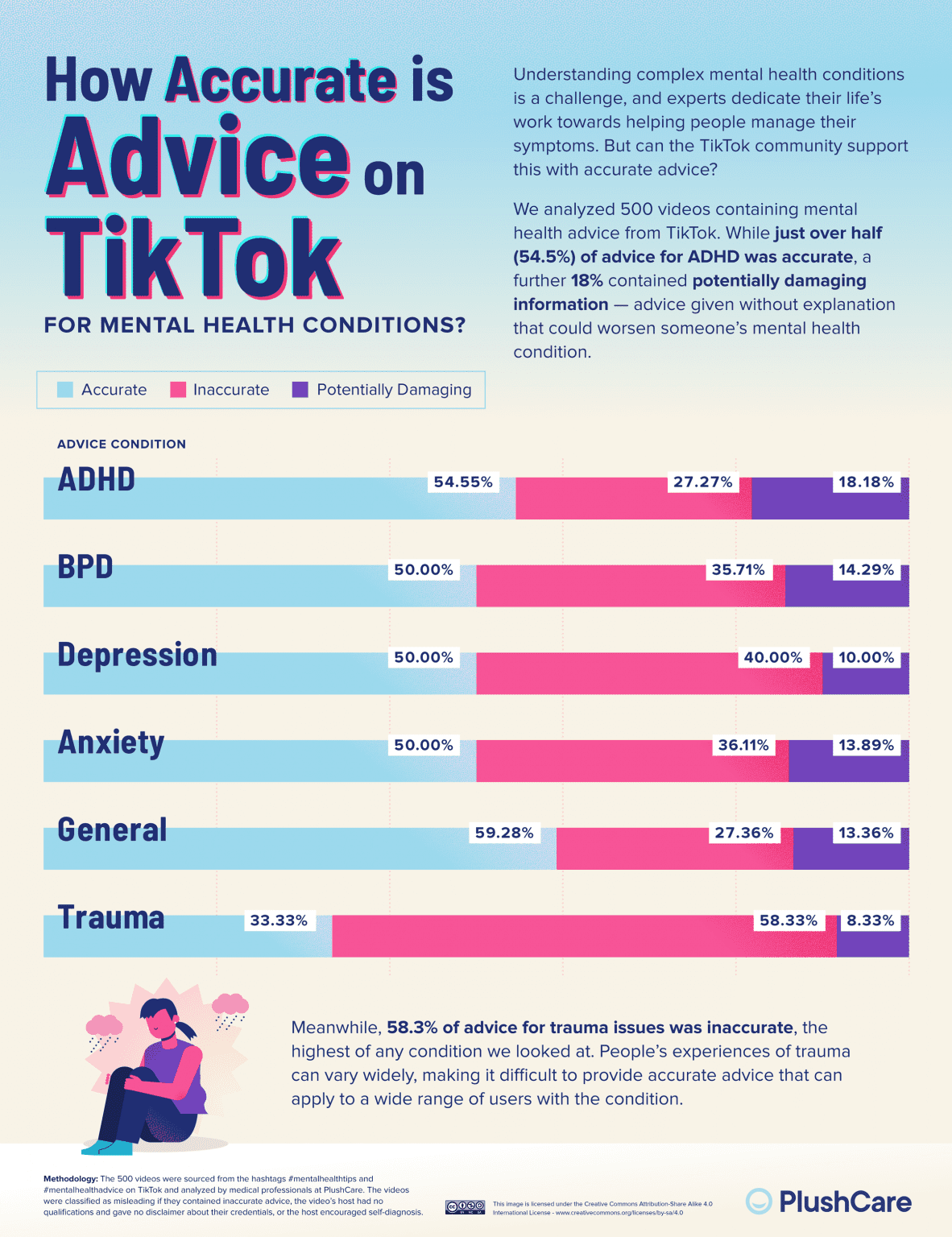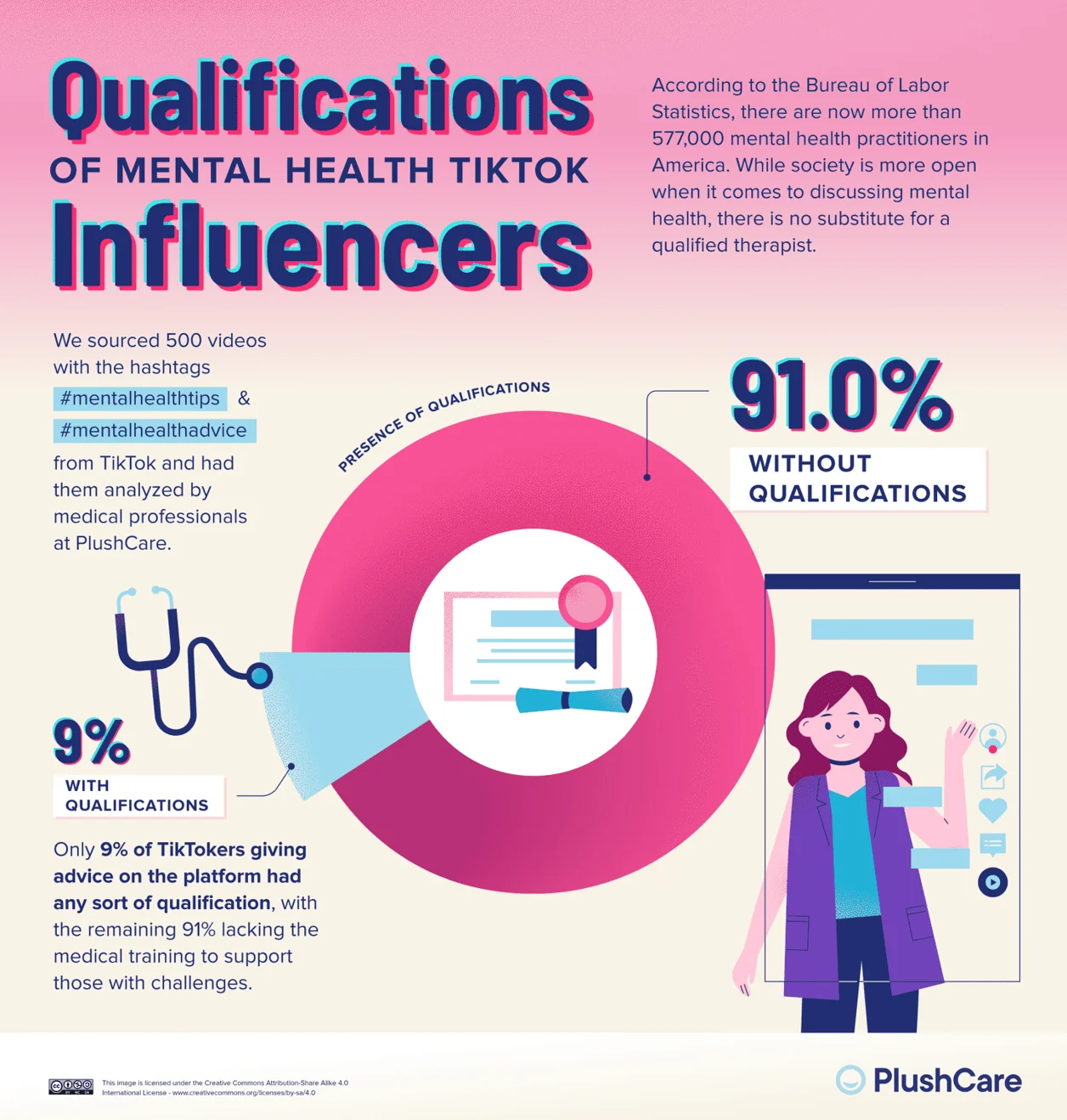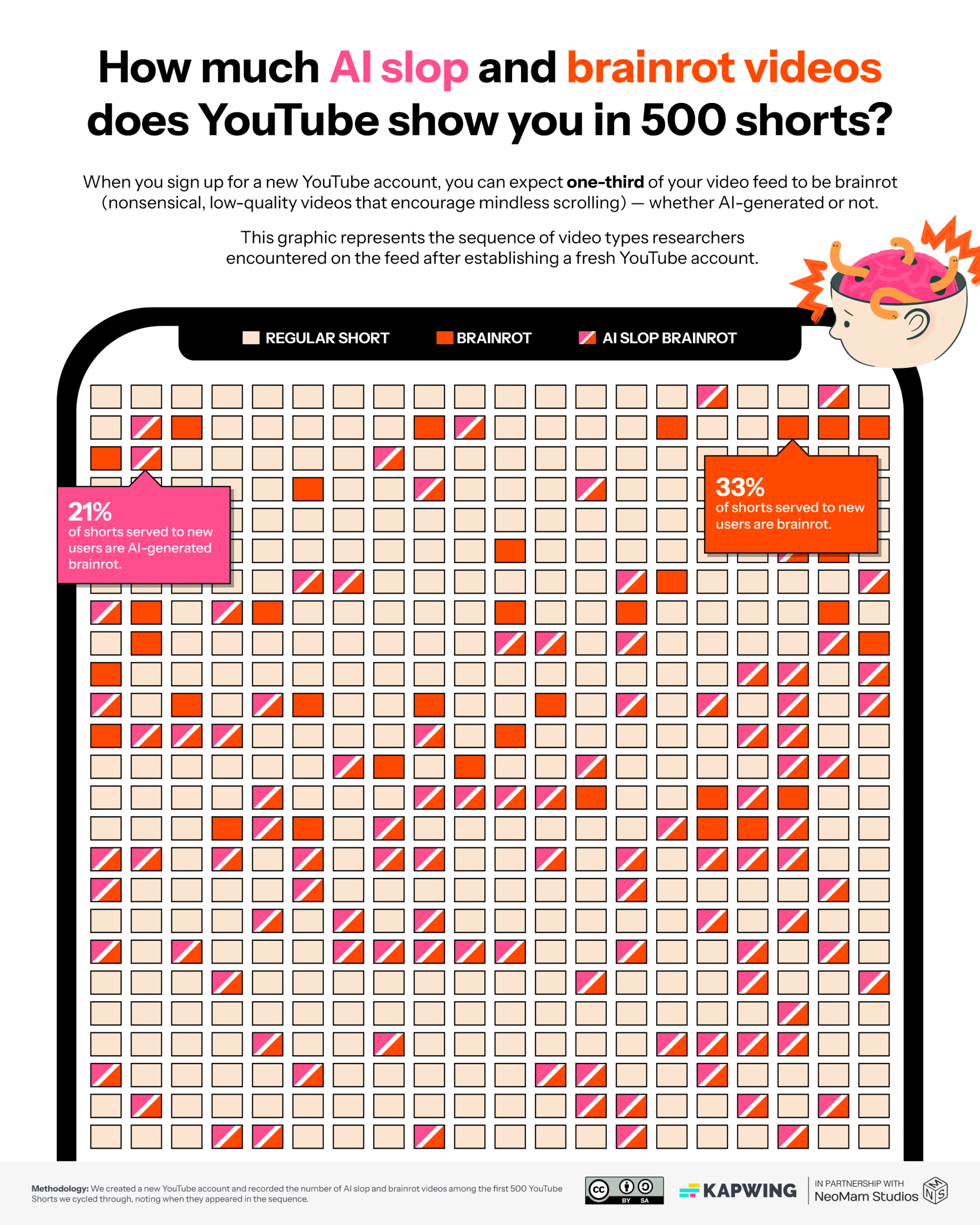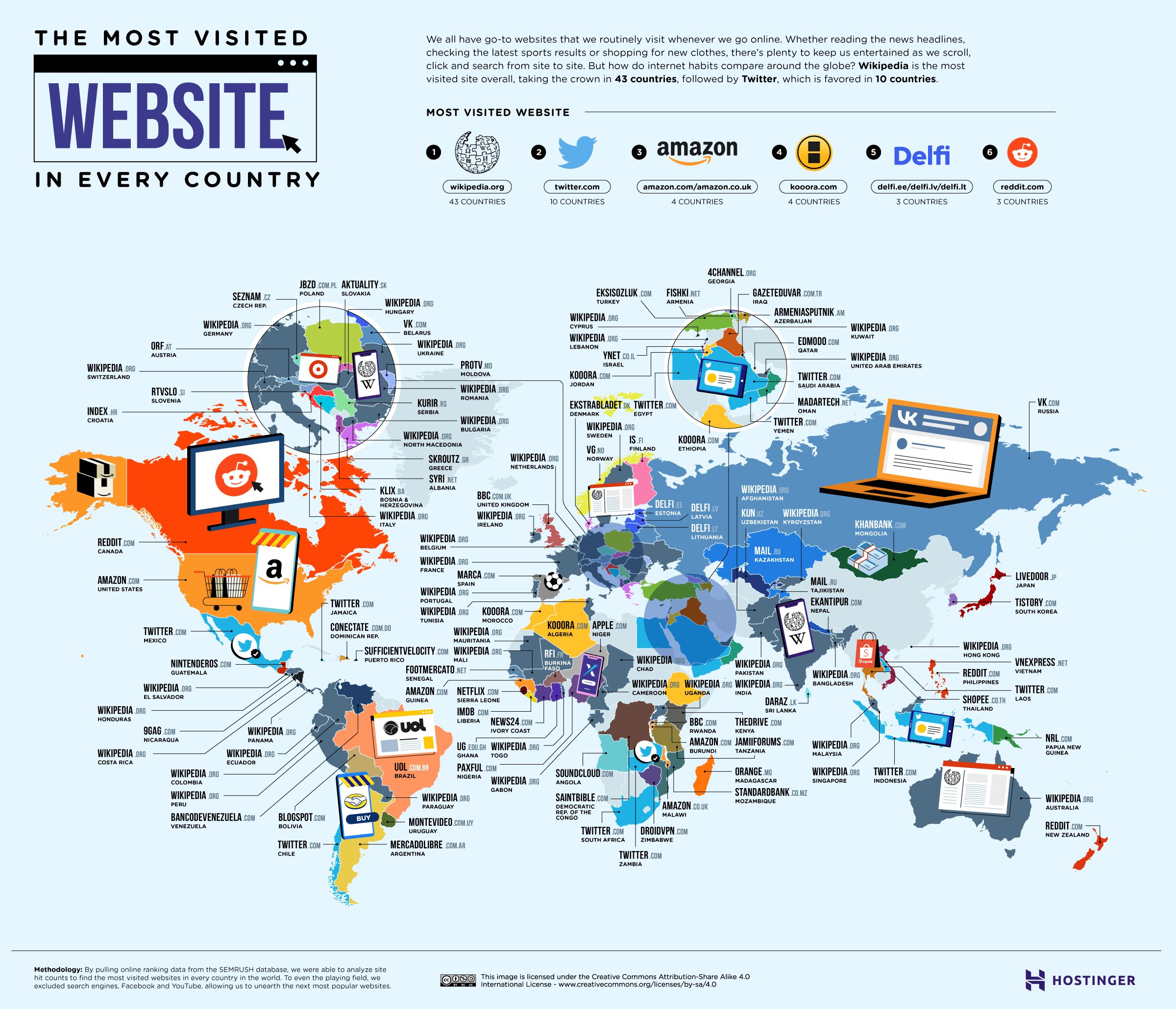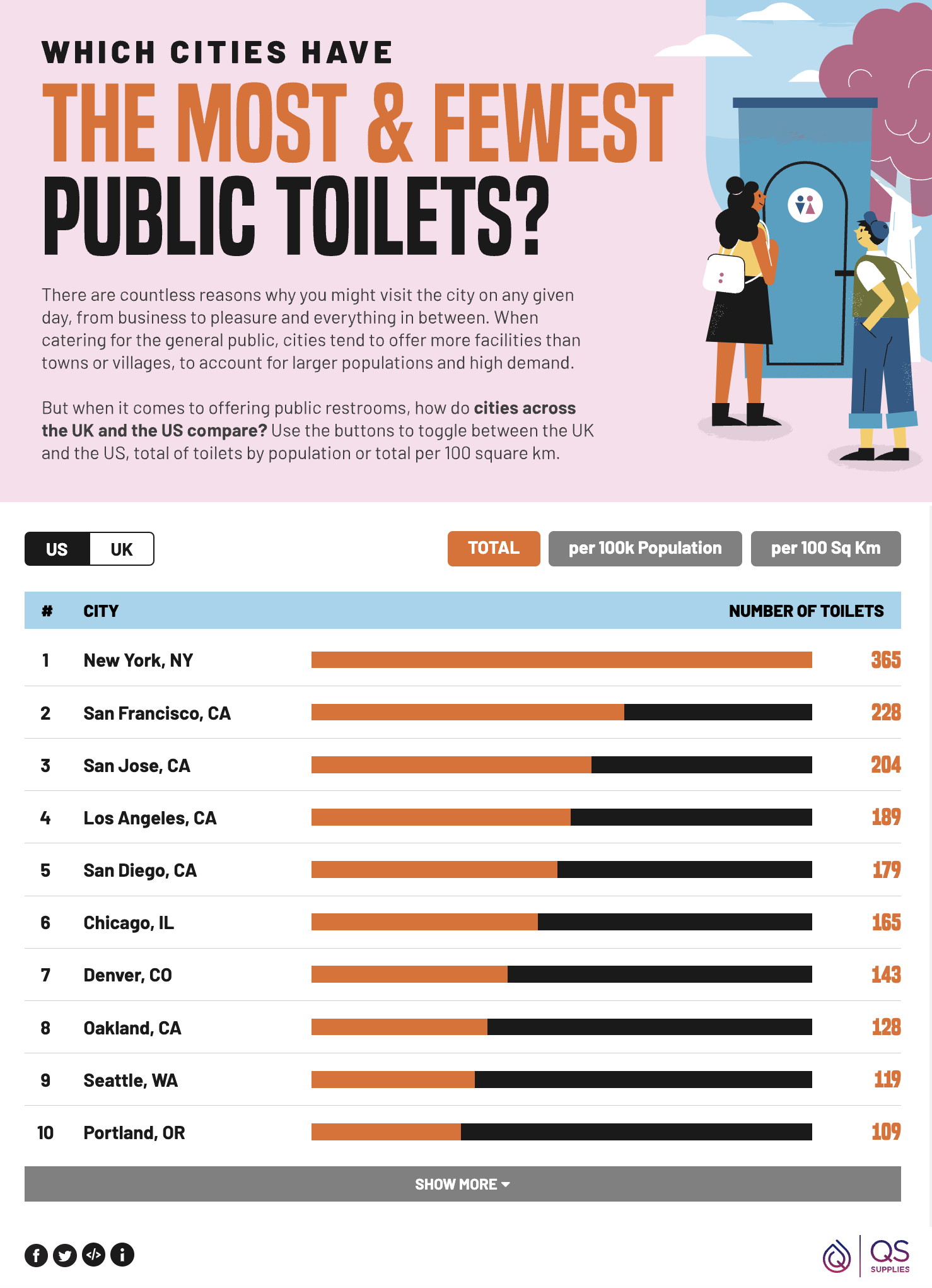Debunking TikTok mental health advice for a healthcare provider
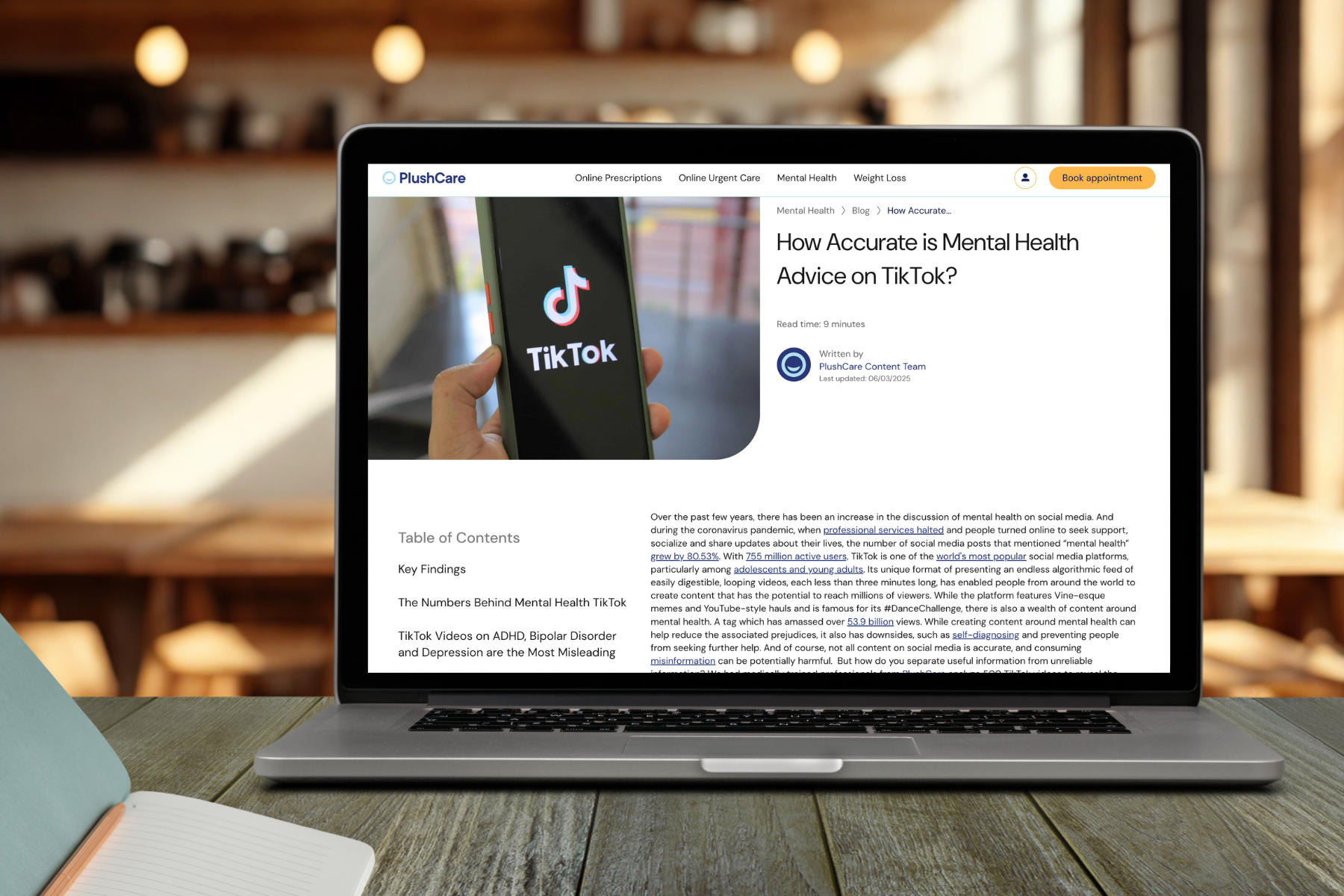
What we did

For a client in the telehealth space, we collaborated with a medically trained professional to analyze 500 TikTok videos in order to reveal the true numbers behind mental health misinformation on the platform.
How we did it
Step 1: Research
We pulled a sample of 500 videos from the hashtags #mentalhealthtips and #mentalhealthadvice on TikTok.
Step 2: Data collection
We collected the total views, total likes and the number of followers for the creator of each video.
Step 3: Collaborative data analysis
We then worked with our client’s lead therapist to analyze all videos, categorizing them by the quality of advice, condition, presence of disclaimer, author qualifications and whether or not there was an encouragement of self-diagnosis.
Step 4: Data visualization
Based on these characteristics, we classified the videos into two categories, as misleading or not, before visualizing our findings.
The results
124
Unique Referring Domains
56
Average Domain Rating
American Psychological Association, The New York Times, National Library of Medicine
Big Wins




The cherry on top
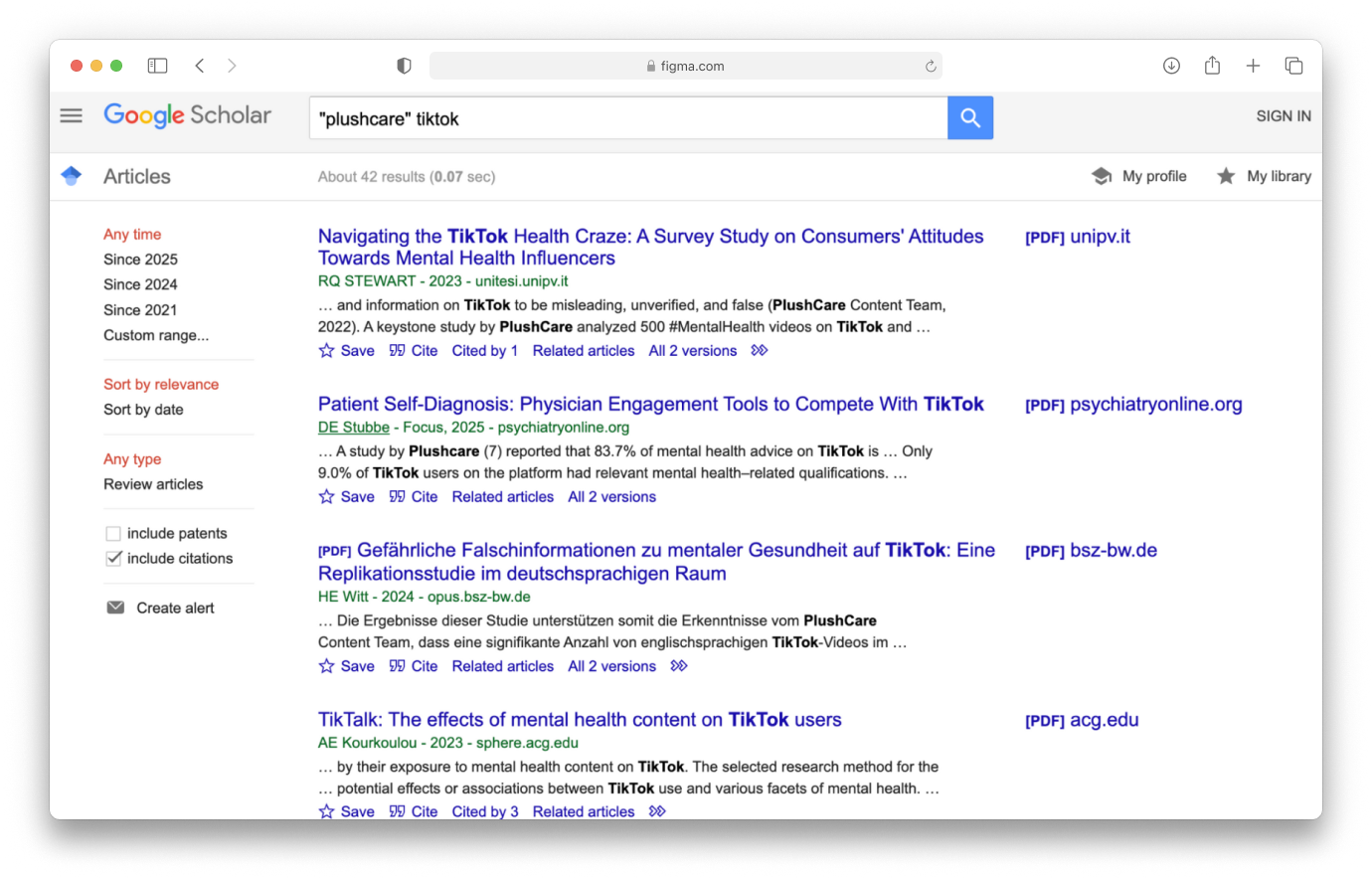
Since its publication in 2023, PlushCare has been referenced in numerous academic papers and medical journals around the world in relation to the findings of this study — from the July 2024 issue of The Carlat Child Psychiatry Report, to the Spring 2025 issue of the American Psychiatric Association’s quarterly clinical review journal.
The campaign assets

“Health misinformation takes on a life of its own on social media, with viral TikTok trends claiming lives and wellness creators giving medical advice with no credentials. One analysis of 500 TikTok videos with the hashtag #mentalhealth or #mentalhealthtips found that more than 80% were misleading.
That sort of inaccurate content can prevent people from seeking help for psychological problems or convince them to try untested treatments that do more harm than good.”

